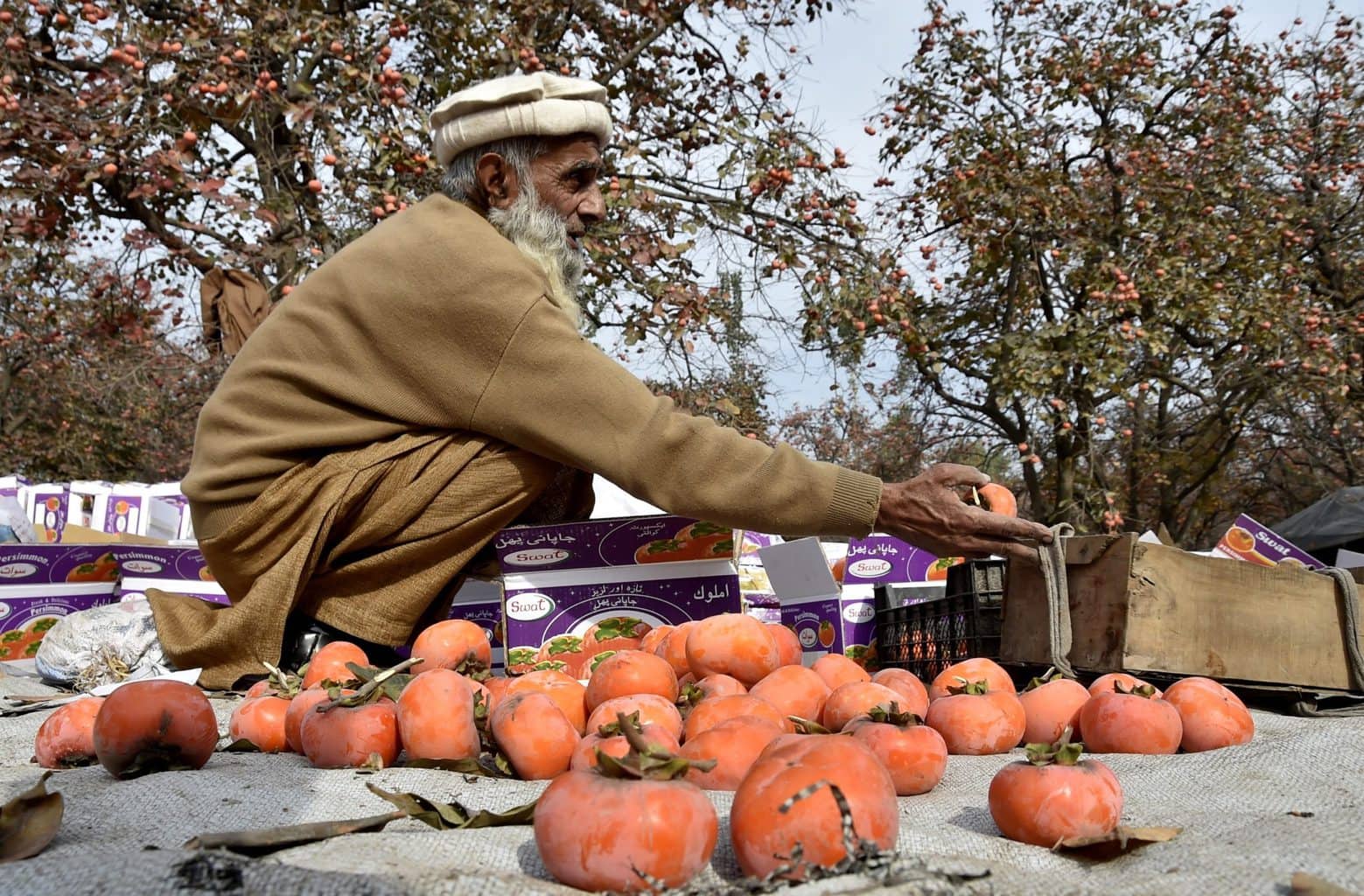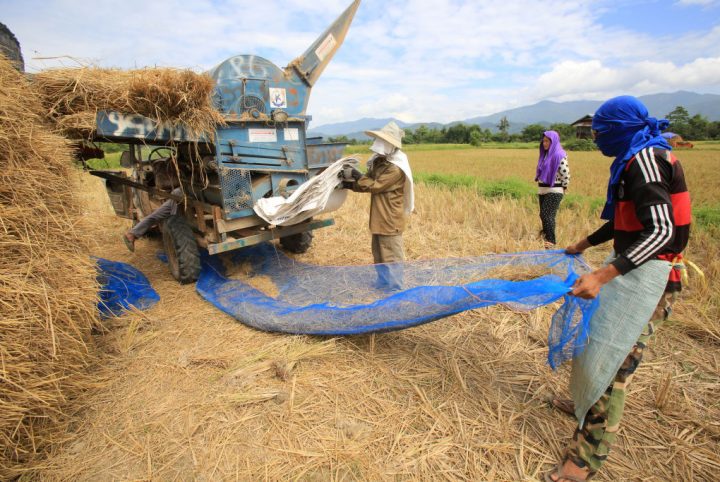
An international project led by Monash Business School investigating Pakistan’s horticulture markets has already brought about policy changes at the highest level.
One of the key ways Australia helps other less developed countries is to provide them not just with money in the form of aid, but with skills that can boost productivity and sustainability particularly in the area of agriculture so that food systems can flourish.
Not only does this help farmers improve their productivity and income, it also offers the local population access to more plentiful and better-quality food.
But Pakistan’s horticultural sector has been caught in a cycle of ‘low value, low investment’ cycle that has failed to take advantage of burgeoning niche markets and struggles to meet shifting consumer demands, according to Professor Sisira Jayasuriya, a development economist who has studied this sector for many years.
In 2016, the Australian Centre for International Agricultural Research (ACAIR) invited Professor Jayasuriya and his colleague Professor Jeffrey LaFrance from Monash Business School’s Centre for Development Economics and Sustainability (CDES) to lead an international research project hoping to shed some light on Pakistan’s existing horticultural marketing systems.
The $1.5 million ACAIR-funded project involved partners from several Australian universities, China’s Peking University and major Pakistani academic and government research institutions. It sought to identify any sources of inefficiency and weaknesses and then offer some practical policy reforms to improve market efficiency, farm incomes, consumer welfare and gender equity.
Significant policy changes
The project has already achieved significant policy changes.
“The Punjab (state) government passed legislation last year incorporating our recommendations, and the Federal Government has signalled support for Punjab legislative changes and hopefully extension to other states (provinces),” Professor Jayasuriya says.
As a result, even before the formal end of the research, the project has achieved major policy impacts, with the promise of much more.

Shifts in agricultural marketing
Two of the project’s collaborators in Punjab, Mr Arif Nadeem and Dr Ahsan Rana actively contributed to policy discussions that resulted in the repeal of the basic law governing agricultural marketing from the colonial times.
As a result, in March last year there were major amendments to the Punjab Agricultural Marketing Regulatory Authority Act, 2018 incorporating the main project recommendations.
The Federal government has also been receptive to the recommendations of the study.
In July 2019, when the legislative processes were underway in Punjab, Pakistan’s Prime Minister Imran Khan announced a national agricultural ‘emergency’ program, including a PKR 23.6 billion (A$223 million) scheme to transform Punjab’s agricultural produce markets.
This involves establishing four new markets and upgrading infrastructure in 54 existing markets.
Mr Moeen Abbas, a Senior Associate to the Prime Minister’s Office, explained that the research has been well received because it suggests very specific interventions.
“Most of the other projects that we studied offered suggestions too broad and generic to be even implemented,” he says.
International research team
Under the leadership of Professors Jayasuriya and LaFrance, the international research team engaged closely and worked interactively with policymakers, senior government officials and industry stakeholders to understand in depth the existing system, problems, and constraints on policymakers.
“We adopted a ‘mixed methods’ approach,” Professor Jayasuriya explains. “This means combining quantitative and qualitative methods of data collection and analysis and producing a comprehensive body of analytical research on marketing systems and channels from farm gate to final markets.”

Shifts in consumer demand
Domestic consumption patterns in Pakistan have changed significantly over the last 15 years with households shifting their expenditure from cereal food items to dairy products, milk products and fruits and vegetables.
The research, however, shows important shifts in demand within horticultural commodities, as the share of household expenditure on mangoes and chilli has fallen, while market share for tomatoes increasing.
“But a rising population and income growth will continue to increase total domestic demand for all three crops,” Professor LaFrance says.
“If we look at this in conjunction with global trends that indicate shifting consumer demand for higher quality and more hygienic products, increasing demand will create opportunities for charging quality-price premia.
“Niche markets are also emerging as is the growth for organic produce.”
Market reforms needed along with improved quality
The study confirmed that, for the three crops studied, there is little if any price premium for quality at the producer end of the marketing chain, though at the retail end consumers do pay more for higher quality.
“Our studies showed that a main cause of underperformance in Pakistan’s horticulture sector is the market structure, which is caught in a cycle of low value, low investment, low innovation and low productivity,” Professor Jayasuriya says
But in order to meet market needs, it is necessary to shift from the current ‘low-quality-high-cost’ equilibrium, reduce wastage, improve storage and processing.
Another issue the research brought to light is that gender reforms will benefit rural women by modernising supply chains.
“Existing social norms exclude women from market participation despite the huge contribution of women to agricultural production,” says Dr Aneela Afzal, who worked with Professor Jayasuriya.
Exporting requires central policy shift away from agents
Exporting also requires higher quality, credible certification, and better marketing.
The research shows that the central policy challenge is to provide the conditions for integrating rural producers into modern value chains while ensuring that vulnerable small farmers will share the benefits from industry modernisation.
“We found that the current marketing system is inefficient. It needs comprehensive reforms involving a combination of legislative/regulatory changes and complementary institutional reforms and supportive policies,” Professor Jayasuriya says
The central bottleneck to value chain modernisation that can be addressed by policy reforms is the concentration of market power in the hands of licensed commission agents (locally known as ‘arthis’).
Their control of market access allows them to exercise market power and hinder the entry of new firms. But they also provide a range of essential marketing services.
“Therefore, policy reforms must be designed carefully to ensure that reforms that weaken the monopoly power of arthis will not jeopardise farmers’ access to those services,” Professor Jayasuriya warns.

Policy recommendations
Part of the research was to outline potential policy changes, with the study putting forward the following recommendations:
- Implement legislative reforms to remove barriers to entry of new firms and weaken the monopoly power of ‘arthis’ so that new dynamic firms can enter horticultural industries;
- Modernise them through technological and institutional innovations;
- Integrate small producers into modern value chains.
The researchers believe that these legislative reforms must be backed up with government policies, investments and initiatives, including establishing appropriate private-public partnerships, to complement the legislative reforms to assist and foster improved production, distribution and marketing, including exports.
And they are not finished yet. Professors Jayasuriya and LaFrance plan for another 18 months to two years of dissemination and advocacy roles, building on links and relationships built up with key stakeholders.
“There will be ongoing policy engagement, with more policy briefs, presentations, and meetings to achieve full potential for policy impact,” says Professor Jayasuriya.
“Ultimately we believe that these findings will lead to important policy changes that will assist Pakistan and help struggling farmers boost their incomes in the future.’


